#new narnia
Text
Ok guys I need to know
#caspian#prince caspian#narnia#netflix#netflix narnia#Greta Gerwig#new narnia#narnia adaption#BBC narnia#disney narnia#pc#vdt#votdt#voyage of the dawn treader#ben barnes
8 notes
·
View notes
Text
Follow on TikTok @newagenarnia for updates
#narnia#cs lewis#Asian#new Narnia#after last battle#chronicles of narnia#imdb#independent#independent film
4 notes
·
View notes
Text

been dreaming of turkish delight like i get edmund
#narnia#the chronicles of narnia#edmund pevensie#30 min drawings are back#heard greta news and idk how to feel
364 notes
·
View notes
Text
there are literally so many reasons why we don't need a third Narnia adaptation
first of all, while they might not be the most accurate, the Disney movies are actually so good and, in my opinion, still manage to capture the heart and soul of the series and what it's truly about. The characters are each perfectly portrayed; the Pevensies act like actual siblings and yet love each other dearly and would die for each other even through all the petty arguments; the music creates perfect atmosphere and emotion and never fails to make me tear up or get shivers down my spine; and the CGI is honestly just absolutely stunning.
I really do not feel like we need another adaptation by Netflix.
Especially not through Netflix.
Netflix has already been known to mess up so many shows and movies by completely changing the source material or adding in unnecessary things that completely take away from the purpose of the story. I can already see them warping Narnia into something that barely even resembles the books, that strips it of its purpose and simply makes it about a fantasy world, nothing more. I've already seen posts saying that the new movies just can't end the way the books end, that heaven must be explained away, that Susan never forgets and falls down a dark path, that the faith aspect must be taken out so as not to offend new viewers.
Here's the thing.
If you take faith out of Narnia, you remove the very heart of the series. you remove the entire purpose. Because Narnia is entirely about faith, and trust, and Someone greater than yourself who sacrifices everything to save your own traitorous soul. the Disney movies did not shy away from portraying this faith as openly as possible. if anyone was offended, I've never seen proof. I have seen many nonbelievers talk about how much they were affected by Aslan's death, which goes to show that you simply don't have to be Christian to understand what Narnia is about, and to love and enjoy it.
So if these new remakes remove the faith aspect, then what is the point? four siblings go to a magical land and save it from a witch and befriend a talking lion with nothing special about him and live there as kings and queens and return home and live happily ever after? there is no sacrifice, there is no "he's not tame, but he is good," there is no creation, there is no redemption, there is no last battle, there is no "in your world, I have another name", there is no sister straying down a dark path because she has forgotten how to hope, and then returning because her story is unfinished and the road to heaven is paved with flowers that symbolize her name.
so then, what are you left with? Aslan is just a talking lion, nothing more. the stone table never cracks, the sun never rises. "That by knowing me here for a little, you may know me better there" is forgotten entirely, because why would Aslan exist in our world if he is merely a talking lion in Narnia? Aslan's country is changed to be something else, and there is nothing about how Aslan suddenly no longer looks like a lion, and how the things that happened after are more great and beautiful than can be described. Edmund's life is never threatened because of his traitorous deeds; Aslan never offers his own life in place of a guilty boy, is never killed, is never resurrected.
the very core of Narnia is removed, and what you are left with is emptiness.
sure, it might make for a good fantasy story nonetheless. you might still have sweeping views and epic music and an intriguing plotline, but something will always feel like it is missing. like there is an empty hole, desperately needing to be filled.
of course, I don't know that all of that will happen; it's just speculation at this point. But I am fairly sure that it is safe to predict these upcoming movies as such. I highly doubt the producers will want to include the faith that shapes Narnia, because according to them, having a faith aspect means less viewers since too many people would be offended.
but if only they would look at the already wonderful existing adaptations, they would know that is simply not the case.
#i can already see cs lewis turning in his grave#this really just feels like another tired live action remake tbh#netflix keep ur shabby hands off of my beloveds or i will beat u with a broom#ANYWAY I AM ALSO TERRIFIED OF WHO IS GOING TO PLAY THE PEVENSIES#SKANDAR AND WILLIAM AND GEORGIE AND ANNA WERE ALREADY PERFECT PLS LEAVE MY CHILDREN ALONE#also so help me if people like these new movies better#when the disney ones are perfection imo even tho they're not fully accurate#and i would like to see them try to beat the music. i would like to see them try.#narnia netflix#netflix narnia#narnia#the chronicles of narnia#aslan#susan pevensie#lucy pevensie#edmund pevensie#peter pevensie#cs lewis#ramblings from the void
219 notes
·
View notes
Text
On Peter and Violence
I think there’s two popular fanon camps regarding Peter Pevensie’s relationship with violence, and though there are certainly plenty of others who, like me, would disagree with both of them, it is those two versions of Peter that I keep seeing pop up again and again.
The first is that of the powerful, raging, warrior king: the version of Peter that speaks more to his mythologized persona within the books than the Peter we actually witness and interact with inside the narrative. His temper is hot, and his sword is fast, and his legacy is soaked in blood. It’s this Peter that lends itself so readily to the (equally fanon) idea that Edmund is the more diplomatic of the two.
The second is that of the pacifist. This idea of Peter is opposed to violence, and only fights under great duress, or because he has been given no other choice; it’s the version of his character that people have snatched from a deleted scene in the “Prince Caspian” film in which he claims he is “thinking about a career in medicine,” and in doing so, distances himself from the war back home. (Although, I would also blame the PC film for the angry, impulsive version of Peter who dominates too much of the fandom; that movie’s interpretation of him is a tragedy.)
Now, of the two, I would prefer the second. It’s at least marginally truer to the boy who “didn’t feel very brave” but did his duty in “The Lion, the Witch, and the Wardrobe,” and I appreciate that. However, I also have a personal vendetta against the extreme version of this viewpoint which prioritizes Peter’s peaceful nature over his dutiful courage, and this is why I’m writing out what I believe are the nuances of his character that sometimes get overlooked in favour of idolizing either his strength or his softness.
There is a statement in my mind to describe him that I avoid using, because I know it requires more context than I usually want to give, but here and now, we’ll call it my thesis: Peter prefers problems he can hit.
I don’t think Peter is a violent character. Genuinely, I don’t. And so I imagine those two statements seem pretty contradictory, because how can he not be violent, if violence is also the ideal solution to his problems?
Well, here’s the thing: Peter’s growing up in a war. Heck, he’s growing up in two.
He’s thirteen in the first book, and World War II is breaking out above him, and, more than that, there is nothing he can do about it. What could he do? He’s a kid.
And then, suddenly, he’s in a new world. They tell him he’s meant to be there. They give him a sword, and he takes it silently. They tell him he will be king.
We see him in his fight with the wolf: “Peter did not feel very brave; indeed, he felt he was going to be sick. But that made no difference to what he had to do.” We are told there that violence is not something he takes to lightly; it is a matter of duty for him: to the country that stands behind him, and his sister who is in harm’s way.
He fights a battle. Years pass, and he fights more. He returns to the war he is powerless to fight against, and then finds himself King again, where he comes up with a plan to fight a duel which -- if everything had gone to plan -- would have put no one but himself at risk.
Yes, Peter is steeped in violence. C. S. Lewis tells us at the end of “The Lion, the Witch, and the Wardrobe,” that he is a “great warrior,” and when he is mentioned in “The Horse and His Boy,” it is said he’s off battling giants. He is High King, and as such, he has to be a soldier. He chooses to be a soldier. He consistently fights, especially so that others may not have to. He fights to protect. To shield. To provide freedom.
And then he goes back home, and is trapped under war again.
Depending on his birthday, Peter turns eighteen around the time of the end of World War II, meaning I have no reason to believe he ever fought within it; however, National Service continued after the war. And this is where I thought that Peter, ever being driven by duty, would sign up without question. It’s what would be expected of him. And, even more, it’s what he’s been doing for years for a country that isn’t his anymore; how could he not do the same for England?
(I put that in a fic. I had a scene where Peter, freshly eighteen, confessed to Susan he would still have to serve, and Susan said, “But not in the war, and I’m glad of that.” And then -- because it was what Peter did within canon time and time again -- I had him tell her, “But I hope you understand that I’d fight for you. For all of you. If my fighting had any chance of helping to keep you all safe, I would go.” ......And somebody told me that was out of character.)
I don’t mind if somebody really likes the idea of Peter becoming a doctor rather than a soldier. Truly, I understand the appeal. But I do have a problem when somebody tells me I’m wrong for believing Peter would continue to do what he had always canonically done after coming back to England.
Because Peter does have a relationship with violence. He doesn’t have a love for it, but he has been tangled in the necessity of it too many times not to follow through when it needs to be done.
And what happens when you raise a boy in war? What happens when you let him fight it? What happens when he learns the chain reaction: fight the battle, win the war, set them free? And then what happens when you put him into situations that can’t be solved with his hands? Give him enemies he can’t fight? Give him wars he can’t be a part of?
And that’s what I mean by “Peter prefers problems he can hit.”
Not that Peter rushes to violence when it isn’t called for, or that he craves war when he finds himself in peace, or anything else of that angry, vicious nature that some people have come to believe--- Gosh, I think Peter would far rather lay the sword down than ever have to pick it up again.
(But it’s what he does. Time after time.)
Peter is a big brother, ever looking after the others. Peter is the High King, ever doing what Narnia requires. Peter is the loyal servant, ever following Aslan’s instruction. Even if it scares him, it’s what he does.
So I don’t think he likes feeling helpless. I think he likes knowing what to do, and I think intangible problems drive him a little crazy, and I think a sword is a very physical thing that has served him well too many times.
Despite my very obvious complaints against “Prince Caspian’s” movie characterization here, I have to say that this is something I love about “The Lion, the Witch, and the Wardrobe.” Peter’s older in the film than he is in the book. He’s closer to going to war himself. And what do we see him do? We see him distracted by passing soldiers-- not much older than himself. We see him reading on the train: “Biggles Goes To War.” We see him consumed by the war, even up to the point that he mimics WWII battle strategies against the Witch’s army.
This is the Peter I’m talking about: the one who feels sick at violence, and shakes and cries and hugs his sisters when its done, and yet...... does it. Every time.
I feel like there’s a dozen things I may be missing, but I think that’s the gist: Peter’s an unwilling soldier who doesn’t know how to put down his sword.
He’s a great warrior, but not an indiscriminate one. He’s a gentle spirit, but not a passive one. Violence made him, but he is so much more than his violent acts. He’s complex. He’s dutiful. He’s faithful. He’s capable. He fights because he has to, and as long as it’s asked of him, he will continue to do it.
So that’s where I stand. That’s why I may seem to show contradictory versions of Peter throughout my fics and edits and commentary; why I may say he’s not violent and then paint an image of him that ties him to violence anyway.
Whether you disagree is your prerogative. This is, by nature, a nuance-based take, and while I do think there’s wrong interpretations of Peter Pevensie out there, I also believe that there is a lot of room within that nuance for various interpretations to be equally right. This isn’t me making an end-all-and-be-all analysis that everyone else must follow to the letter.
This is just me explaining -- for myself or for anyone else who cares to listen -- what I believe, and how it affects the things I create. <3 So there’s my take on Peter’s complicated relationship with violence: the way it coats him, and yet, doesn’t define him: the way he’s so softhearted, and yet not himself without it.
“For never since we four were Kings and Queens in Narnia have we set our hands to any high matter, as battles, quests, feats of arms, acts of justice, and the like, and then given over; but always what we have taken in hand, the same we have achieved." ~Peter [The Lion, the Witch, and the Wardrobe: Chapter XVII: The Hunting of the White Stag]
Disclaimer: none of this is anti-Aslan “look how he traumatized this poor boy” propaganda, and if that is your viewpoint, kindly do not interact with this post. :)
#narnia#the chronicles of narnia#peter pevensie#the lion the witch and the wardrobe#prince caspian#look at me :) I made a new post
385 notes
·
View notes
Text
One of my professional nemeses is a guy who does not know I exist who consistently posts god awful takes on Inside Higher Ed but today he posted one bitching about the decline of Western culture being taught in schools and how "It’s no secret that today’s kids have much less exposure to those Greek, Roman and Norse myths, legends and sagas" which is a bold take in the age of Percy Jackson, but he then went on to cite Lord of the Rings and Chronicles of Narnia as newer cultural touchstones that "reflect more modern sensibilities, values and concerns, including themes of diversity and inclusion and environmental awareness. They’re crafted with contemporary language and settings, even when set in fantastical worlds, making them more immediately accessible to today’s children than the sometimes archaic language and unfamiliar settings of ancient myths" which ???? Yes Lord of the Rings, infamously written with accessible language.
This is the same guy who wrote a post about how we no longer produce the same caliber of intellectuals as... and then listed off 15 people, all white, 1 woman, and two Georges, so I honestly think he may have been cryogenically frozen for a few decades and they thawed him out to write terrible thinkpieces.
#he went full mask off a while ago so I mostly don't read his posts anymore#but I did today and went ah same shit as always#this is the same guy who wrote that Mexicans came to the Americans 300 years ago#apparently confusing Mexicans with the Spanish#this fucking guy: what is a new trendy hip with the kids media franchise.... chronicles of narnia
48 notes
·
View notes
Text
(mid-battle, distant screams, general chaos)
peter: ...maybe i do need a nap
susan: you needed a nap six days ago. at this point you need a fucking coma
#hard same#my new meds gave me insomnia rip#incorrect narnia quotes#incorrect quotes#narnia#peter pevensie#susan pevensie
71 notes
·
View notes
Text
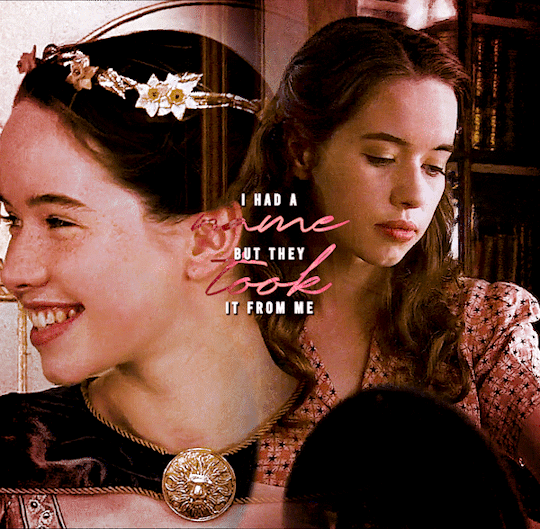
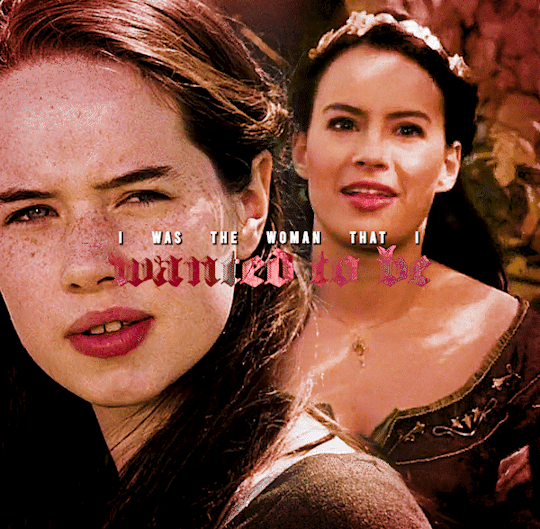






The fair and the brave and the good must die
I seen the other side of living, I know heaven's a lie
I’ll tear through the night, and I'll raise some hell
Cause I'm the World Ender, baby and I'm back from the dead
— the world ender, lord huron | insp.
#THE WHITE WITCH AIN'T GOT NOTHING ON QUEEN SUSAN#i am so glad that we have an actual shot of aslan dying#also 'the fair and the brave and the good must die' is not susan's new philosophy it's what she's realized are the rules of the universe#it also aligns pretty perfectly with the fair being edmund the brave being peter and the good being lucy#this entire gifset is just... aslan's actions being so horrible that it makes the gentle snap and turn brutal#narnia#the chronicles of narnia#tcon#susan#susan pevensie#gifs#narniaedit#thechroniclesofnarniaedit#tconedit#susanedit#susanpevensieedit#anti aslan#narnianetwork#perioddramaedit#perioddramasource#fantasyedit#disneyedit#disneygifsdaily#femaledaily#usermoh#userwxwood#anna popplewell#the lion the witch and the wardrobe#prince caspian#voyage of the dawn treader
821 notes
·
View notes
Photo
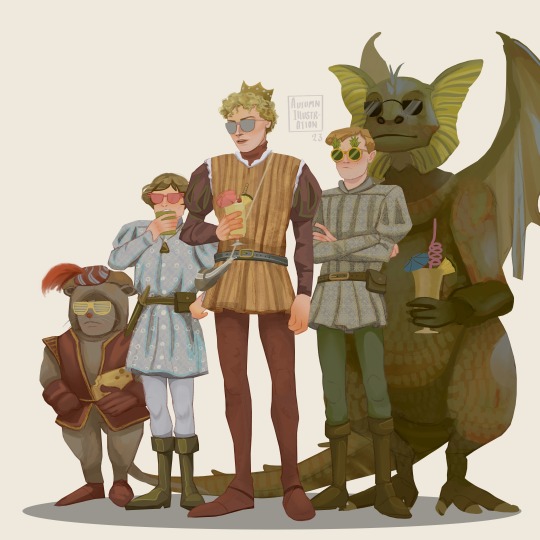
pov: you end up in the wrong version of narnia.
so today i found out that this version of the Chronicles of Narnia (Voyage of the Dawn Treader) wasn’t something i hallucinated as a child. i’m not sure what to do with this information.
I mean, it was cheesy and the sfx aged like milk (see bbc budget), but gosh was it charming and sweet.
#art#illustration#digital art#shitposts#*new childhood memory unlocked*#the 80s BBC version of Narnia was the only one we had as kids#The Disney one was out and I wanted it#but no cuz we had narnia at home.#Narnia at home:#don't get me wrong this version was dope#chronicles of narnia#bbc chronicles of narnia#caspian#lucy pevensie#edmund pevensie#reepicheep#useless eustace the dragon#and pina coladas#lucy gets a juice box
308 notes
·
View notes
Text
I was rewatching lww today as you do and I got to this part:
“To the radiant southern sun, Queen Susan the Gentle.”
And as always an unhinged thought popped up:
If it’s the southern sun, would it like… rise in the south… or maybe set in the south?
Or what other criteria makes this sun southern?
We all know this world is flat and the lamppost is a tree, so really, anything could go
#i haven’t been posting much lately but if you’re new here this is exactly the type of post you should expect from this blog#narnia meme#narnia crack#narnia meta#lww#lww movie#the lion the witch and the wardrobe#narnia#chronicles of narnia#narnia shitpost#tcon
200 notes
·
View notes
Text
i’m sure people smarter than me have said this, but the odyssey is the sequel to the monomyth actually. in the hero’s journey the hero departs from home, from innocence, from safety, to fulfil his destiny. in homer’s the odyssey, the war is over, the destiny fulfilled. next comes the real fight, the unwinnable fight—to return to everything you left home to fight for.
in the first half of the poem, while odysseus fights tooth and nail to return home, his home fights with its last breath to give odysseus a home to return to. and time is running out. his wife penelope is down to her last desperate excuse. suitors have invaded his home, eating through his household and his wealth. his son, telemachus, almost grown, leaves home for the first time to find out if odysseus is still alive, if there is still a reason to keep fighting. having lost everything he had, over and over, odysseus is finally allowed to arrive in his homeland. at first he doesn’t recognise it. and he is cursed to look old and decrepit, so that none of his loved ones would recognise him.
for the second half of the poem, he has returned and miraculously, he has not been displaced or forgotten. but now he has to reclaim what was his. and removing the rot, restoring this place to the home odysseus remembers, is long and painful. instead of walking through the front door, he must sneak in through the back or risk being thrown out. not a single person knows him by sight; odysseus must prove his identity over and over, to every member of his household. he must retell story after story, share secret after secret, reveal every marking or scar upon his body, to finally be recognised by his own family. and then he destroys every last trace of the intruders—kills the men, kills the servants, wipes the slate clean.
by athena’s magic, he is restored to his former youth and glory as he reunites with his wife. the families of the slain suitors try to seek revenge, but zeus, lord of the skies, intervenes. odysseus, filled with his god-given strength, is home, and ready to fight to protect it.
it’s a complete sequel to the heroes journey, but what makes it part of the monomyth is the horrible truth about odysseus’ tale: that it’s impossible. that you will leave, and your home will change in your absence, and someone might fill your place; your family won’t recognise you, your wife met someone else, intruders have destroyed your home, and you will never be as young as you were. you will return and you will fight with every ounce of your strength and it won’t be enough to turn back the clock. it’s the terrible last chapter to every hero’s story that we don’t like to talk about.
and yet, of course, it’s the same story we tell over and over: we’ve won the war, now all we want is to return home, but home is no longer somewhere we can reach.
#the odyssey#hero’s journey#the monomyth#greek mythology#odyssey#homeric hyperfixation haze#sorry this has nothing to do with mxtx but i’ve been sitting on this thought about the odyssey for months#like. i’m sure this isn’t a new thought but.#you think of tolkien and the scourging of the shire#all quiet on the western front#narnia#all the chinese poets#i want to go home. but i am home.#think about how the odyssey ends at the very second athena declared the conflict over.#we don’t see odysseus reaction to it. we see him ready to fight. athena declares a peace.#but it is abrupt. as if athena is slamming the window shut. he won he’s happy that’s enough.#does he manage to live after that? we don’t get to know#i was sitting on this thought for ages. and then i read the greek tragedies. was helping my friend with a paper on home by toni morrison#and yeah this all clicked. got irresistible
157 notes
·
View notes
Text

One time for character design practice I decided to draw Captain Drinian and also give him a sister except I’m not much of a writer so I don’t even have a name for her, all I know about her is that she’s an asexual lesbian, and like super strong or something.
Also I just want to believe that Lucy wasn’t the only woman on that ship the entire time.

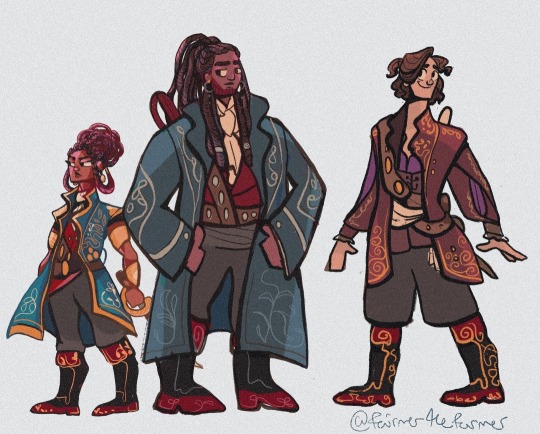
#and that they are both ride or die for each other and caspian#also did this to practice box braids and locs#narnia#voyage of the dawn treader#artists on tumblr#character design#oc art#illustration#c.s. Lewis#fantasy oc#chronicles of narnia#drinian#caspian x#I love thinking about the lore and headcanons for narnia#particularly around the golden age#but also caspians era#cause it’s rebuilding this new kingdom with even more variety in citizens#I like thinking about the telmarines that stayed and why#this also exists cause I’m bisexual#fairmerthefarmer art#prince caspian#vdt
20 notes
·
View notes
Text
oohhhhhh im imagining in my y2k magic school au that maybe when magic students graduate they can choose an animal to gain the powers of that best matches their magic styles and adam chooses a dog so all of his magic has the puppy magic boost (like super hearing speed, smell, etc). and idk maybe the graduation ceremony theres a spell that steven overhears that the masters use to grant the graduates these abilities. so hes like "huh, maybe if i use a bit of that spell with some of my spells, i'll create a new spell to bridge the gap of communication between rodents and humans for the first time!" and instead the botched spell just turns him into a mouse (with some human capabilities like speech and using his hands normally)
#im new to the whole magic thing so im just makin things up lol#i was more of a narnia kid so no traditional magic story books 4 me. instead im intrigued by symbolism and wise/silly talking animals#djsadbean rambles#steven boxleitner#amazo guy#magic school au
27 notes
·
View notes
Text
(UPDATED) Fandoms and characters I will write for;
Harry Potter / FB (I do not at all support J.K Rowling
-luna lovegood
-ron weasley
-neville longbottom
-newt scamander
Scott Pilgrim vs the world
-ramona flowers
-kim pine
-knives chau
Riordanverse (pjo, hoo)
-percy jackson
-annabeth chase
-leo valdez
-hazel levesque
-frank zhang
-piper mclean
-jason grace
(I won't write nico or will)
Dead Poets society
- Todd Anderson
Narnia
- Edmund Pevensie
#new writers on tumblr#neville longbotton x reader#percy jackon and the olympians#luna lovegood x reader#ron weasley x reader#kim pine x reader#knives chau x reader#kyle spencer x reader#ramona flowers x reader#todd anderson x reader#dead poets society x reader#annabeth chase x reader#frank zhang x reader#zenawrites𖦹ʚ♡ɞ#newt scamander x reader#edmund pevensie#edmund pevensie x reader#narnia
28 notes
·
View notes
Text
Okay maybe I overspent a little at the bookstore BUT I finished my collection of the Edge books in their original hardcover editions*
*The nine that got those editions, that is

Look at them all
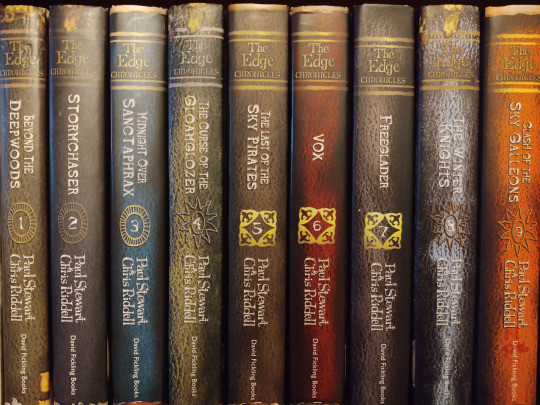
#the edge chronicles#iirc new editions put them all in chronological order#like no these are like narnia in that you will jump around the timeline as the author intended and you will like it
43 notes
·
View notes
Text
GOODE Luck! Professor Lewis!

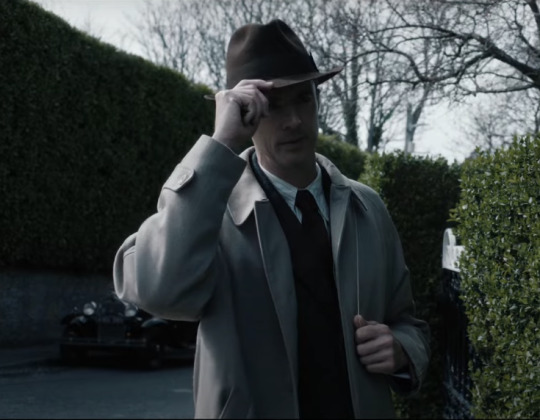

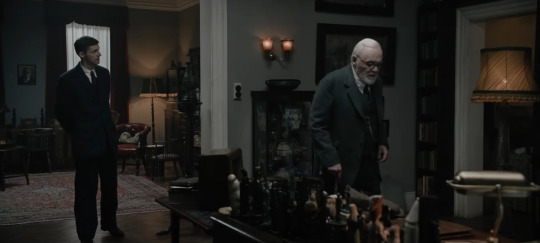


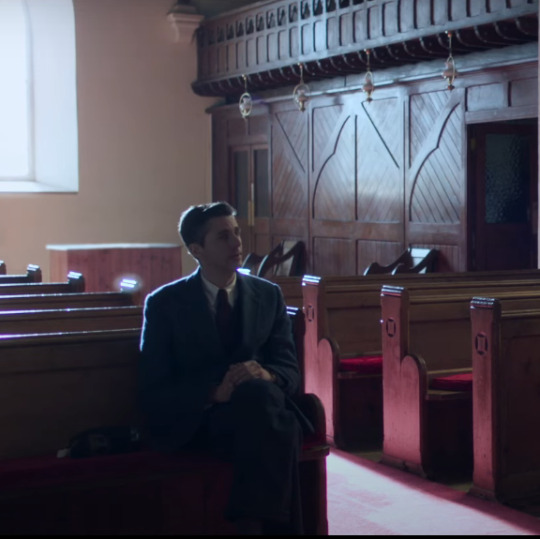

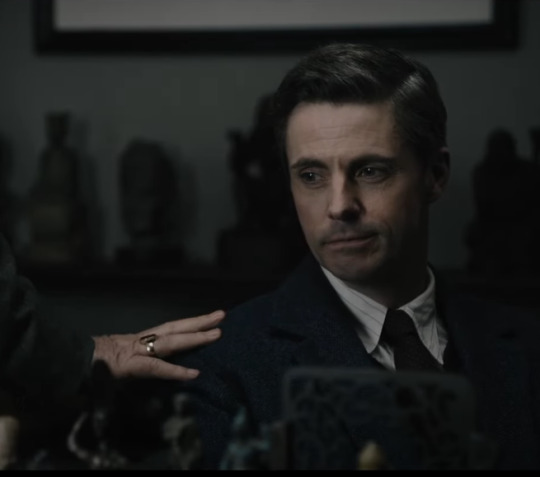

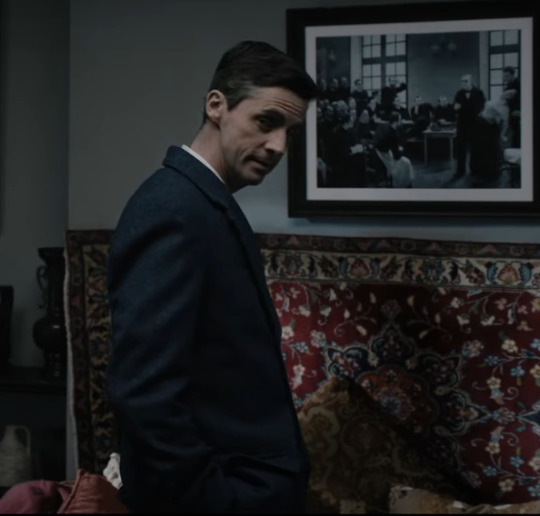
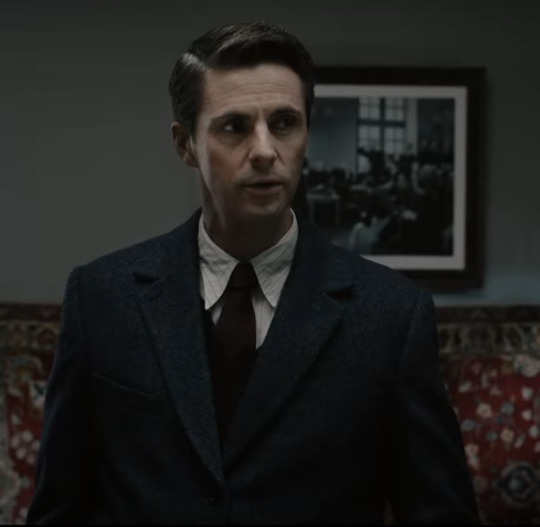

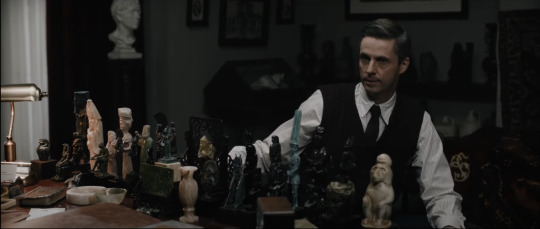
Matthew GoodE as the iconic C. S. Lewis in FREUD'S LAST SESSION movie.
*World premiere at American Film Institute Fest October 27. Theatrical release: December 22, 2023.
#matthew goode#a discovery of witches#freud's last session movie#matthew clairmont#freud's last session#c s lewis#iconic writer#narnia#freud's last session film#new release#coming soon#matthewgoode#henry talbot#oscars#oscars 2024#oscars buzz#oscars contender#best actor#best supporting actor#award worthy#goode performance#world premiere
31 notes
·
View notes